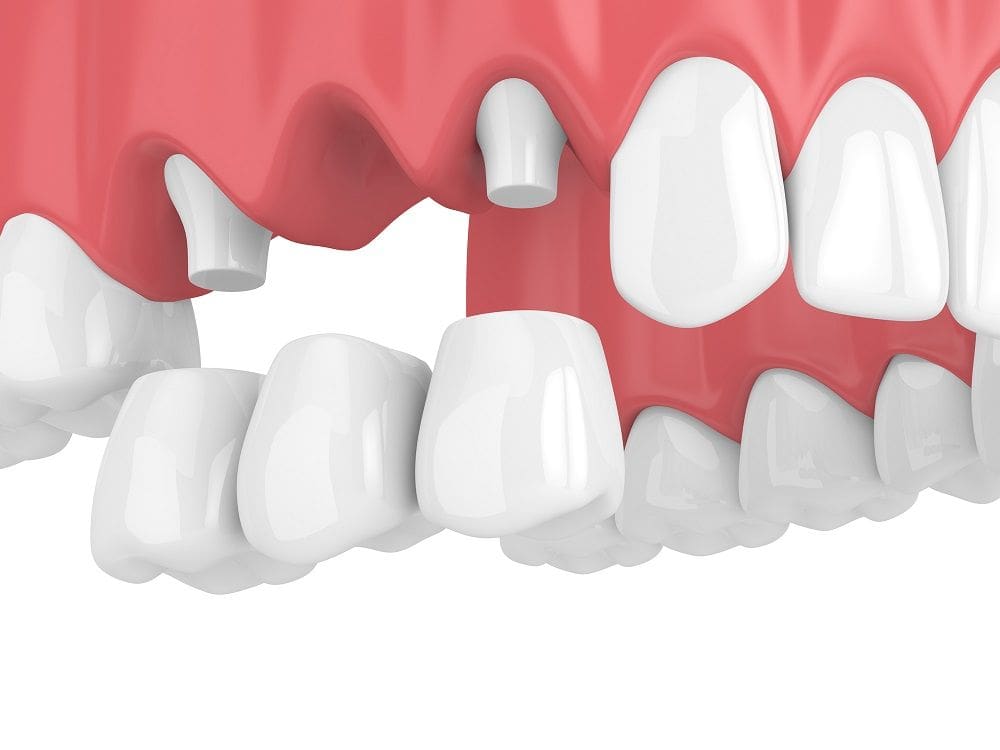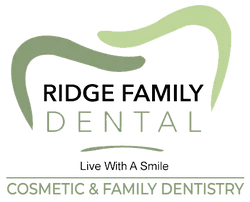Having missing teeth can be concerning. Not only can it affect your confidence, but it can also impact your oral health. When you lose a tooth or more, our Ridge Family Dental team is here for you. We are here to support you on your journey to a renewed smile. We offer several options to bring back your smile, including dental bridges.
Luckily, the process of restoring your smile with a dental bridge is a straightforward and pain-free experience. This process is one of the restorative dentistry procedures we provide to new and existing patients in Lyndhurst, New Jersey.
Our goal is not only to replace your missing teeth but also to provide you with a solution that feels completely natural. Imagine smiling with ease, knocking that your smile is restored and enhanced. We will guide you through every step of this process to ensure your results and comfort.

A Bridge to Confidence
Dental bridges are a popular and effective way to replace missing teeth. These devices can literally bridge the gap created by one or more missing teeth. As a result, they can help restore the look and function of your smile. Dental bridges have two main components: the pontic and the abutments.
The pontic is a replacement tooth, and the abutments are supporting teeth on either side of the bridge. With dental bridges, the abutment teeth may be natural teeth or dental implants. Of course, this depends on your specific needs.
Why Choose Dental Bridges?
There are many different options for missing teeth. So, why should you choose dental bridges?
Restore Your Smile: Dental bridges provide a natural-looking solution to fill the gaps from missing teeth. As a result, bridges can enhance the beauty and symmetry of your smile.
Maintain Facial Structure: Missing teeth can lead to a sunken appearance and changes in your facial structure. Additionally, this change to your face can lead to looking older. Dental bridges help maintain the natural shape of your face.
Enhance Speech: Gaps in your teeth can affect your speech. This is because your teeth are vital parts to produce certain sounds. Once they are gone, it can be hard to say certain words properly. So, bridges can improve your ability to pronounce words correctly and communicate with confidence.
Improve Chewing Function: Missing teeth can make chewing difficult. The chewing function is an important part of your digestive process. When you have missing teeth, it can impact your diet and overall health. Luckily, dental bridges restore your ability to eat a variety of foods comfortably.
Prevent Teeth Shifting: When a tooth is missing, adjacent teeth may shift over time. Unfortunately, this can cause alignment issues. With dental bridges, you can prevent this unwanted movement, helping maintain the proper alignment of your teeth.
Dental Bridge FAQs
Dental bridges replace multiple consecutive missing teeth. Learn more by reading the answers to these commonly asked questions.
How long will my dental bridge feel weird?
It takes time for your body to adjust to a foreign object in your mouth. At first, it feels big and bulky, even though it’s designed to blend in with your natural teeth. It usually takes around two weeks for it to be completely comfortable. After this, you’ll feel like it’s just a part of your mouth.
Does getting a dental bridge hurt?
No, you shouldn’t feel pain getting a dental bridge. We use local anesthesia to numb the entire area that we’ll be working with. At most, you’ll experience some soreness and sensitivity after the anesthetic wears off. This should go away in a few days. If you experience severe or long-lasting pain, call our office immediately, as this isn’t normal.
Do I need to floss under my dental bridge?
Yes, and it’s very important. If you don’t, food particles and bacteria will build up underneath the bridge, leading to a higher chance of infection, tooth decay, and gum disease. We’ll show you techniques for properly flossing under and around your bridge and any special tools you may need.
Should I get a Waterpik to clean under my bridge?
This is one of the tools we recommend the most. It’s great for cleaning between teeth and effectively cleaning around dental restorations. For patients that may have movement restrictions, it allows you to ensure that you get a proper cleaning more effortlessly than dental floss.
Will I need to replace my dental bridge?
If you don’t have an implant-supported bridge, you’ll likely need to replace it. Dental implants are the only option that stops jawbone deterioration. Otherwise, the jawbone continues to deteriorate over time. This changes the fit of the bridge and can irritate the gums. It also won’t be fully functional if it doesn’t fit correctly.
Am I a good candidate for a dental bridge?
Dental bridges are ideal for patients missing multiple consecutive teeth. You have to be in good oral health to ensure that you can support a dental restoration. You need enough healthy jawbone structure for implant-supported bridges to support the implants and ensure a stable smile.
